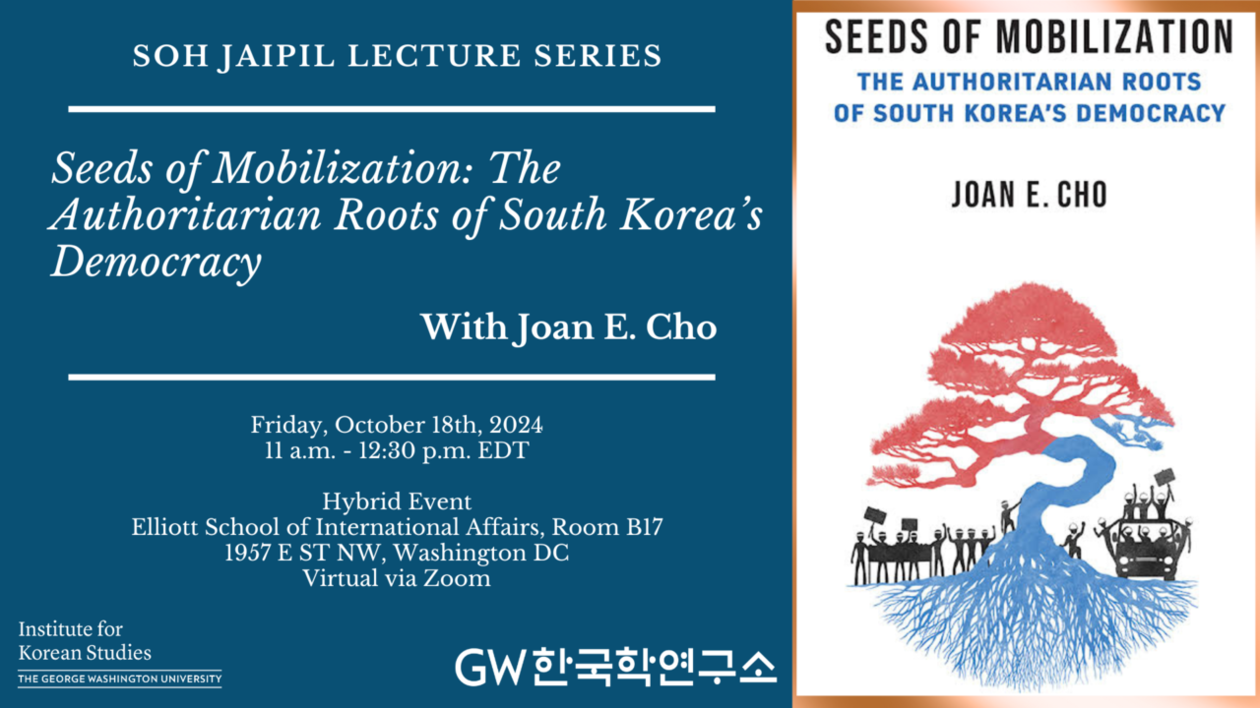time zone will be applied.
Report this post?

Seeds of Mobilization: The Authoritarian Roots of South Korea's Democracy
Date and time:
Hybrid Event
Elliott School of International Affairs, Room B17
1957 E ST NW, Washington DC
Virtual via Zoom
About the event
South Korea is sometimes held as a dream case of modernization theory, a testament to how economic development leads to democracy. Seeds of Mobilization: The Authoritarian Roots of South Korea's Democracy (University of Michigan Press, 2024) takes a closer look at the history of South Korea to show that Korea’s advance to democracy was not linear. Instead, while Korea’s national economy grew dramatically under the regimes of Park Chung Hee (1961–79) and Chun Doo Hwan (1980–88), the political system first became increasingly authoritarian. Because modernization was founded on industrial complexes and tertiary education, these structures initially helped bolster the authoritarian regimes. In the long run, however, these structures later facilitated the anti-regime protests by various social movement groups—most importantly, workers and students—that ultimately brought democracy to the country. By using original subnational protest event datasets, government publications, oral interviews, and publications from labor and student movement organizations, Seeds of Mobilization shows how socioeconomic development did not create a steady pressure toward democracy but acted as a “double-edged sword” that initially stabilized autocratic regimes before destabilizing them over time. The book also reveals how the nonlinear path from economic development to democracy has led to enduring differences in political attitudes and behavior across generations, shaped by their distinct experiences of economic growth and authoritarianism.